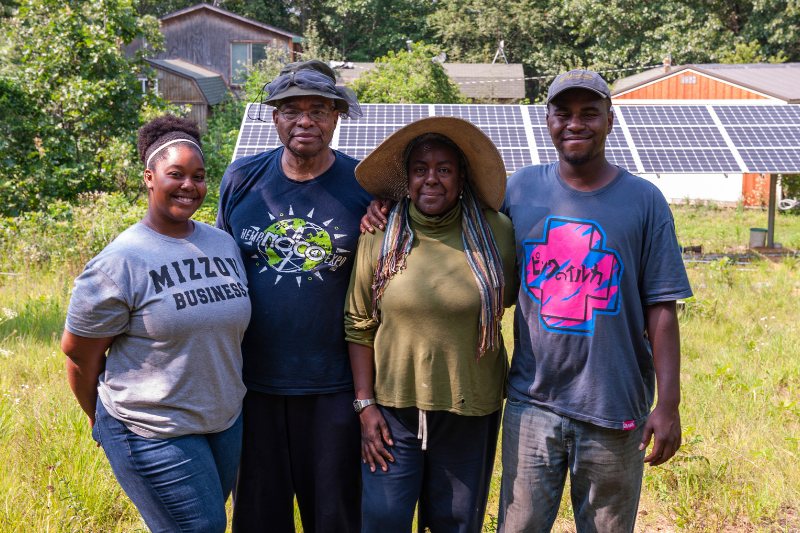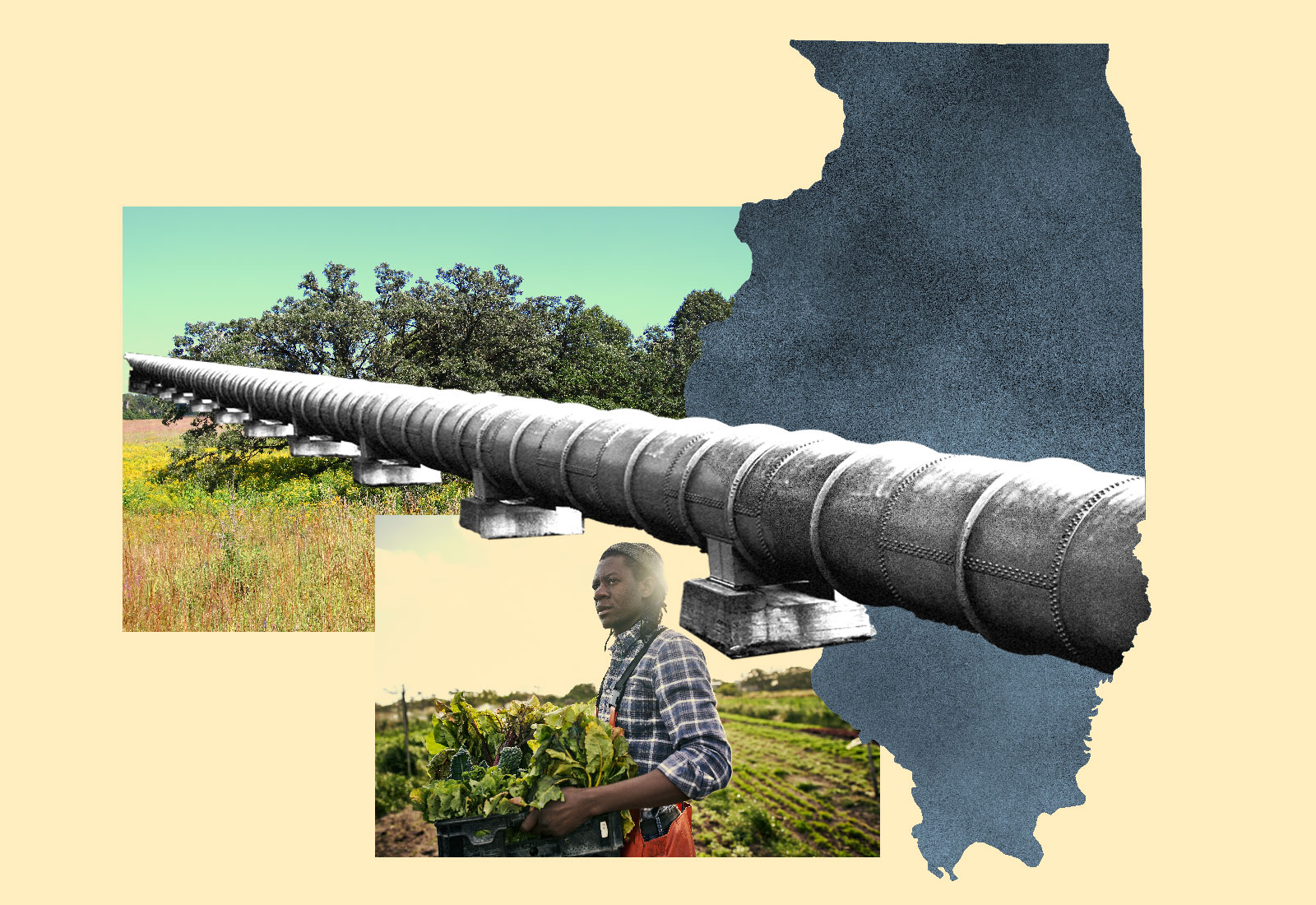Pembroke Township, population less than 2,000, is the last historic Black farming community left in Illinois. And at one time, it was the largest such community in the northern United States. Founded in the 1860s by runaway slaves, it soon became an agricultural hub, producing tons of hemp during World War II and later feeding Chicago, Detroit, and Cleveland during the Great Migration from the South to the North.
And now Nicor Gas wants to run a natural gas pipeline to it.
Earlier this summer the Democrat-controlled Illinois General Assembly passed HB 3404 — a bill that will help fund the proposed gas line, in part by allowing for a 250-percent increase to customers’ gas bills statewide. It would cap a years-long push to bring cheaper natural gas heat to an area, an hour’s drive south of Chicago, that now gets its heat from a mix of propane, wood-burning stoves, and electric space heaters. Governor J.B. Pritzker, a Democrat, has until August 29 to sign the bill into law.
But many local farmers and environmentalists are pleading with Pritzker to veto the bill, arguing that the pipeline would threaten agricultural land and rare black oak savanna habitat, and that the time has passed for new fossil fuel infrastructure.
“The community wants renewable energy,” said Fred Carter, a co-founder of the Black Oaks Center for Sustainable Renewable Living in Pembroke who also grows swiss chard, eggplant, cantaloupes, okra, and other crops on his farm. “This pipeline is a direct assault to the agricultural potential of this community.”
Environmental advocates also argue that the pipeline would undermine Pritzker’s commitments to reducing greenhouse gas emissions. Pritzker has pledged to slash emissions in line with the 2015 Paris Agreement and has also committed to ending emissions from the gas industry by 2045.
The case for building the pipeline focuses on the area’s deep poverty. Advocates say it would increase economic opportunities for the mostly Black village of Hopkins Park in Pembroke, one of the poorest areas of the state with a poverty rate more than double that of Illinois overall. It has garnered the support of civil rights leader Jesse Jackson, who has organized meetings between Nicor executives and government officials to make the project happen. Hopkins Park’s mayor, Mark Hodge, has said it would help alleviate poverty for its 500 residents by attracting business. Hodge has reportedly said that switching to renewable energy would be too expensive.

Peter Christensen, an assistant professor of environmental economics at the University of Illinois at Urbana-Champaign, sees the merits of both sides. “We also have to consider the needs of the local community that really has been left out of energy infrastructure in the past,” he said.
Local farmers and environmental advocates see another way to bring the town out of “energy poverty.” They envision Pembroke as a hub of solar power and sustainable agriculture, carrying on the stewardship of the land. Pembroke has plenty of other needs that could be a priority for economic development, like emergency services or broadband internet.
“This legislation only offers a false solution to the very real problems faced by a community disinvested for decades,” the Illinois Environmental Council wrote in a letter to lawmakers.
If passed, the $10 million plan would lay more than 30 miles of natural gas pipeline through Pembroke Township and hook up hundreds of residents.
Carter worries about a spill contaminating the town’s water and threatening his health and livelihood. He relies on an aquifer on his property for drinking water and watering his crops, like many others in the area.
State regulators have cited Nicor for contaminating water as recently as 2019, when the Illinois Environmental Protection Agency issued a violation to the company for dumping carcinogenic wastewater into farming fields near aquifer recharge zones. The company is also under investigation by the state attorney general for potential contamination at a dozen sites around Illinois.
Gilbert Michaud, an environmental policy expert at Loyola University Chicago, says he supports bringing rural, lower income communities onto a level playing field, but is skeptical about promises that the pipeline will increase economic opportunity.
“At some point this industry is going to bust,” Michaud said. “Should we be building costly pipelines for a resource that isn’t renewable?” The same reasons Pembroke is good for farming — it’s flat, large, with a lot of sun — would make it good for renewable energy, he said. “From a technical feasibility perspective, something like utility scale wind or solar makes a lot of sense.”
According to the Illinois Environmental Council, despite residents’ long-time interests in renewable energy, the state hasn’t looked at whether solar would work in Pembroke Township.
In March, Pritzker visited Pembroke to celebrate a sweeping new law he signed that provides job protection for people with criminal records, expands access to state contracts for minorities and women, and benefits Black farmers. Carter hopes the governor continues his support by vetoing the bill, which would authorize the local government to seize private property for the pipeline using eminent domain.
“That’s been a fear for the community,” Carter said, “that we will be forced to move from the homes that we’ve been living in for generations.”



